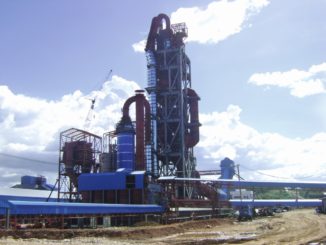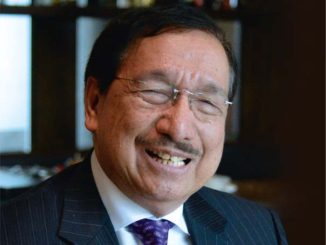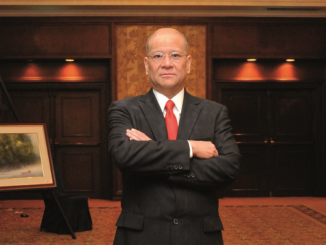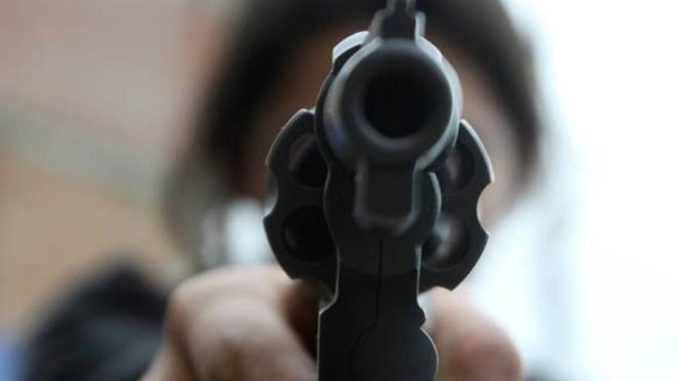
To me, three things stand out in the Supreme Court’s 11-3-1 July 4 decision upholding the legality and constitutionality of President Duterte’s May 23, 2017 proclamation of martial law in the entire island of Mindanao.
One, the humility of the High Court in acknowledging that it must stay within the confines of its power and in accepting that ultimately it is the President of the Philippines who knows best when it comes to matters of security and territorial integrity. This it did, without losing sight of its role in the checks and balances of democracy. This is greatness personified.
Two, the importance of Marawi in our national life and the court’s strategic view that the rebellion’s target is Mindanao.
Three, the call for national unity amid the crisis in the nation.
On the Supreme Court’s timidity towards judicial overreach, the writer of the decision, Justice Mariano del Castillo, stated, “Clearly, the power to determine the scope of territorial application belongs to the President.” “The Court cannot indulge in judicial legislation without violating the principle of separation of powers, and, hence, undermining the foundation of our republican system,” he stressed, adding:
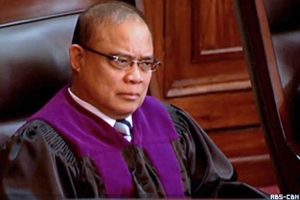
“The Court is not equipped with the competence and logistical machinery to determine the strategical value of other places in the military’s efforts to quell the rebellion and restore peace. It would be engaging in an act of adventurism if it dares to embark on a mission of deciphering the territorial metes and bounds of martial law. To be blunt about it, hours after the proclamation of martial law none of the members of this Court could have divined that more than ten thousand souls would be forced to evacuate to Iligan and Cagayan de Oro and that the military would have to secure those places also; none of us could have predicted that Cayamora Maute would be arrested in Davao City or that his wife Ominta ‘ Romato Maute would be apprehended in Masiu, Lanao del Sur; and, none of us had an inkling that the Bangsamoro Islamic Freedom Fighters (BIFF) would launch an attack in Cotabato City. The Court has no military background and technical expertise to predict that. In the same manner, the Court lacks the technical capability to determine which part of Mindanao would best serve as forward operating base of the military in their present endeavor in Mindanao. Until now the Court is in a quandary and can only speculate whether the 60-day lifespan of Proclamation No. 216 could outlive the present hostilities in Mindanao. It is on this score that the Court should give the President sufficient leeway to address the peace and order problem in Mindanao.” “The declaration of martial law or the suspension of the privilege of the writ of habeas corpus is essentially an executive act.”
As to the center of the rebellion, the court said, “’with a predominantly Muslim population, Marawi City is the only Islamic City of the South’.”
On April 15, 1980, it was conferred the official title of “Islamic City of Marawi.” The city’s first name, “Dansalan,” “was derived from the word ‘dansal’, meaning a destination point or rendezvous. Literally, it also means arrival or coming.” Marawi lies in the heart of Mindanao. In fact, the Kilometer Zero marker in Mindanao is found in Marawi City thereby making Marawi City the point of reference of all roads in Mindanao.
“Thus, there is reasonable basis to believe that Marawi is only the staging point of the rebellion, both for symbolic and strategic reasons. Marawi may not be the target but the whole of Mindanao. As mentioned in the Report, ‘[l]awless armed groups have historically used provinces adjoining Marawi City as escape routes, supply lines, and backdoor passages;’ there is also the plan to establish a wilayat in Mindanao by staging the siege of Marawi. The report that prior to May 23, 2017, Abdullah Maute had already dispatched some of his men to various places in Mindanao, such as Marawi, Iligan, and Cagayan de Oro for bombing operations, carnapping, and the murder of military and police personnel, must also be considered. Indeed, there is some semblance of truth to the contention that Marawi is only the start, and Mindanao the end.”
No disregard for events in other places
The court said: “Considering the widespread atrocities in Mindanao and the linkages established among rebel groups, the armed uprising that was initially staged in Marawi cannot be justified as confined only to Marawi. The Court therefore will not simply disregard the events that happened during the Davao City bombing, the Mamasapano massacre, the Zamboanga City siege, and the countless bombings in Cotabato, Sultan Kudarat, Sulu, and Basilan, among others. The Court cannot simply take the battle of Marawi in isolation. As a crime without predetermined bounds, the President has reasonable basis to believe that the declaration of martial law, as well as the suspension of the privilege of the writ of habeas corpus in the whole of Mindanao, is most necessary, effective, and called for by the circumstances.”
The court thus ruled that “the President did not err in believing that what is going on in Marawi City is one contemplated under the crime of rebellion.” “If it is political, such as for the purpose of severing the allegiance of Mindanao to the Philippine Government to establish a wilayat therein, the crime is rebellion.” The court also pointed out that rebellion and terrorism are not mutually exclusive.
Call for unity
Finally, the Supreme Court’s call for unity. It said:
“The Filipino people are confronted with a crisis of such magnitude and proportion that we all need to summon the spirit of unity and act as one undivided nation, if we are to overcome and prevail in the struggle at hand.”
The court noticed that “the siege in Marawi City has entered its second month and only God or Allah knows when it would end” and “to-date, 418 have died .
It asked: “Can we not sheathe our swords and pause for a while to bury our dead, including our differences and prejudices?”
Martial law express
The most important impact of the Supreme Court’s 11-3-1 decision on July 4, 2017 finding factual, and thus constitutional basis for President Duterte’s May 23 declaration of martial law is not that the high court supported Duterte.
The most far-ranging impact is that the Supreme Court has grossly devalued the meaning and impact of martial law. The court did so by simply defining what martial law is all about. In philosophy and logic, once you define something, you limit it, because something that is not defined has no limits.
In effect, Duterte, backed by the Supreme Court, has produced what I call the small-dosage martial law, or martial law express-—in the same manner restaurant chains, supermarkets, or even banks call their small branches “express”, because they are not the regular thing that people are used to.
So now we have a low-level martial law, not the martial law that people were used to—and feared—for a long time. This is the Ferdinand Marcos martial law, which was declared from Sept. 21, 1972 and extended until 1981 when he theoretically lifted it. In effect, Marcos’s martial law lasted for 14 years, from 1972 until the dictator was ousted by People Power in February 1986.
Martial law and calling out power
Martial law express came about because Solicitor General Jose Calida could not tell the high court, during the three days of oral arguments in June, what is the difference between martial law and the calling out powers of the president. Calida’s answer: None.
What is the calling out power of the president? It is one of the three extraordinary powers of the president, as commander-in-chief, the other two being suspending the privilege of the writ of habeas corpus and declaring martial law.
According the SC decision penned by Justice Mariano del Castillo, “among the three extraordinary powers, the calling out power is the most benign and involves ordinary police action. The President may resort to this extraordinary power whenever it becomes necessary to prevent or suppress lawless violence, invasion, or rebellion. “[T]he power to call is fully discretionary to the President;” the only limitations being that he acts within permissible constitutional boundaries or in a manner not constituting grave abuse of discretion”.” In fact, Del Castillo points out, “the actual use to which the President puts the armed forces is xx x not subject to judicial review.”
Martial law subject to review by SC and Congress
This could mean that the only difference between the president’s calling out power and the power to declare martial law is that martial law is subject to review by the Supreme Court—and by Congress, which may extend it.

The 1987 Constitution puts limits on any Marcos-era type martial law. These limits, or bedrock standards as Chief Justice Maria Lourdes Sereno, are the fourth paragraph of Section 18, Article VII of the Constitution:
“A state of martial law does not suspend the operation of the Constitution, nor supplant the functioning of the civil courts or legislative assemblies, nor authorize the conferment of jurisdiction on military courts and agencies over civilians where civil courts are able to function, nor automatically suspend the privilege of the writ,” writes Sereno in her dissenting opinion against the imposition of martial law on the entire island of Mindanao, instead of limiting this to just three provinces, including the province where Marawi City is located.
Limits to martial law
Martial law express has three major limits.
One, ability to legislate.
Says CJ Sereno: “The Constitution specifically provides that a state of martial law does not supplant the functioning of the legislative assemblies… The President is not automatically vested with plenary legislative powers. Ordinary legislation continues to belong to the national and local legislative bodies even during martial law. This necessarily connotes the continued operation of all statutes, even during a state of martial rule. It has been opined that the martial law administrator has the authority to issue orders that have the effect of law, but strictly only within the theater of war – an area that is not necessarily the same as the entire territorial scope of the martial law declaration.”
Two, operation of civil courts.
Explains Sereno: “The rule under the Constitution is that the civil courts cannot be supplanted by military courts. … The civil courts remain open and fully functioning, and the Rules of Court continue to be applicable.” She notes that despite Duterte’s martial law, “all courts, including that in Marawi City are functioning, albeit in a nearby municipality.”
Three, despite martial law, there cannot arbitrary arrests.
“The constitutional guarantee against arbitrary arrests under the Bill of Rights remains in full effect. As a general rule, a warrant of arrest is necessary before an arrest can by validly affected as provided in Section 2, Article III of the Constitution,” insists Sereno.
However, she grants, “because rebellion, conspiracy, or proposal to commit rebellion and crimes or offenses committed in furtherance thereof constitute direct assaults against the State, they are in the nature of continuing crimes. As such, arrests without warrant of persons involved in rebellion are justified because they are essentially committing an offense when arrested.”
Sereno says “The arrest of persons involved in rebellion is thus synonymous with a valid warrantless arrest of a person committing a crime in the presence of the arresting officer.”
On the other hand, the chief points out, “Arrests of persons charged with or suspected of the crime of terrorism or the crime of conspiracy to commit terrorism may be made without judicial warrant only upon authority in writing by the Anti-Terrorism Council. Immediately after taking custody, the arresting officers shall notify in writing the judge of the court nearest the place of apprehension or arrest.”
“The officer is allowed to detain the person for a period not exceeding three days from the moment the latter has been taken into custody. Within three days, the arresting officers shall present the person suspected of the crime of terrorism before any judge of the place where the arrest took place at any time of the day or night. Judges shall ascertain the identity of the arresting officers and the persons presented and inquire as to the reasons for the arrest. They shall also determine by questioning and personal observation whether or not the suspect has been subjected to any physical, moral or psychological torture. They shall submit a written report within three calendar days to the proper court that has jurisdiction over the case of the person thus arrested.”
Considering the above, I am not surprised that House Speaker Pantaleon Alvarez is now talking of an extended Duterte martial law – until 2022, until the president’s term expires.

